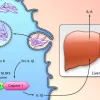Can Dietary Supplements Help Lower Cholesterol and Triglycerides?
- Understanding Cholesterol and Triglycerides
- Cholesterol and triglycerides are essential types of fat found in the blood.
- High levels of cholesterol and triglycerides can increase the risk of heart disease.
- Cholesterol is classified into HDL (high-density lipoprotein) and LDL (low-density lipoprotein).
- HDL is often referred to as “good” cholesterol, while LDL is considered “bad” cholesterol.
- Triglycerides are another type of fat found in the blood and are used by the body for energy.
- Role of Dietary Supplements
- Dietary supplements such as omega-3 fatty acids, plant sterols, and soluble fiber have been studied for their potential to lower cholesterol and triglyceride levels.
- Omega-3 fatty acids, found in fish oil supplements, have been shown to reduce triglyceride levels.
- Plant sterols, found in fortified foods and supplements, may help lower LDL cholesterol levels.
- Soluble fiber supplements, such as psyllium husk, can help lower LDL cholesterol.
- Effectiveness of Dietary Supplements
- Research suggests that omega-3 fatty acids can reduce triglycerides by up to 30%.
- Plant sterols have been shown to lower LDL cholesterol levels by 8-15% when taken in recommended doses.
- Soluble fiber supplements have demonstrated LDL cholesterol-lowering effects as well.
- Considerations and Recommendations
- It’s important to consult with a healthcare professional before starting any dietary supplement regimen.
- Supplements should be used as part of a comprehensive approach to managing cholesterol and triglycerides, which may include dietary changes, exercise, and medication if necessary.
- While dietary supplements can be beneficial, they are not a substitute for a healthy lifestyle and should be used in conjunction with other interventions.
- Customizing the Approach for the Indian Population
- Indian dietary habits and genetic predisposition may influence cholesterol and triglyceride levels, making it essential to tailor interventions to the Indian population.
- Traditional Indian dietary components such as turmeric, garlic, and fenugreek have been linked to potential cholesterol-lowering effects and could be incorporated into a personalized approach.
- Introducing Fitpaa for Comprehensive Support
- Fitpaa offers a holistic approach to health and fitness, encompassing personalized nutrition, fitness plans, and real-time guidance.
- With a focus on metabolism monitoring and management, Fitpaa aims to help individuals achieve their health and fitness goals with guaranteed results.
- Fitpaa’s AI-driven technology and expert team of fitness coaches, nutritionists, and doctors can provide tailored support for managing cholesterol and triglyceride levels.
- Taking the Next Step with Fitpaa
- Fitpaa’s commitment to transforming lives and ensuring guaranteed results aligns with the goal of improving cardiovascular health, including managing cholesterol and triglycerides.
- By leveraging Fitpaa’s personalized approach and state-of-the-art technology, individuals can embark on a journey towards better heart health and overall well-being.
- Fitpaa’s innovative app, recognized as the no.1 mHealth app, offers a unique opportunity for individuals to experience a comprehensive solution for their health and fitness needs.
- Conclusion
- While dietary supplements can play a role in managing cholesterol and triglycerides, they should be integrated into a holistic approach to health and wellness.
- Fitpaa’s dedication to helping individuals achieve their health and fitness goals with guaranteed results presents an appealing option for those seeking personalized support in managing their cardiovascular health.









